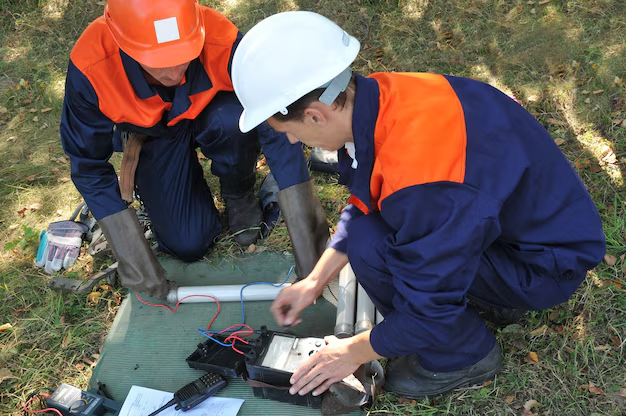How Much Time Does It Take to Become an Electrician?
Becoming an electrician can open doors to a stable and potentially lucrative career, but how long it takes to get there depends on several pathways available to aspiring electricians. Here's a breakdown of what the journey might look like:
Education and Training Routes
Apprentice Programs: The Traditional Path
Apprenticeship is usually the most common way to become an electrician. These programs typically last four to five years and combine on-the-job training with classroom instruction.
- Hands-on experience: Apprentices work under the supervision of experienced electricians, getting paid while they learn.
- Classroom instruction: This involves studying electrical theory, code requirements, safety, and more.
Trade Schools: Accelerated Learning
For those who wish to fast-track their way into the field, enrolling in a trade school could be a viable option. Programs at trade schools usually last about one to two years and offer many of the classroom-based components of an apprenticeship.
- Quicker entry into the field: Graduates may still require an apprenticeship or supervised work experience after completing a program, but the school provides substantial foundational knowledge and skills.
Combined Paths
Some states offer combined programs where you can complete a shorter apprenticeship by attending a trade school. These hybrid models often last around three to four years.
Certification and Licensing
After completing the required training, aspiring electricians must pass a licensing exam to become certified in their state, confirming knowledge of electrical codes and proper safety procedures. The requirements and exam can vary significantly by location, so it’s crucial to check your local requirements.
Financial Considerations: Aiding Your Journey
Embarking on the journey to become an electrician can be costly, but several resources are available to ease the financial burden:
Government Aid Programs
Many states offer tuition assistance for technical education programs. The U.S. Department of Labor also provides information on apprenticeship grants.
Financial Assistance and Debt Relief Options
- Student loans: Various government and private student loan options are available to cover the costs of trade school.
- Debt relief programs: For those already burdened by other expenses, consolidating existing debt can free up more resources to invest in education.
Educational Grants
Numerous scholarships and grants are specifically available for vocational training. Check with potential schools and local educational bodies for opportunities.
Credit Card Solutions
Setting up a credit card with low interest rates or cards that offer rewards for educational expenditures can also help manage costs associated with training.
In conclusion, the time it takes to become an electrician can vary, but the combination of hands-on experience, education, and certification can typically be completed in four to five years. By exploring available financial aid and educational resources, aspiring electricians can make the journey more manageable and cost-effective.
Financial and Educational Support Snapshot:
- 🎓 Trade School Grants: Check local educational institutions for specific scholarships.
- 🛠️ Apprenticeship Assistance: State programs might cover tuition for apprenticeship-related studies.
- 💡 Government Loan Programs: Explore federal student loans specifically for vocational training.
- 💲 Debt Consolidation Services: Reduce financial strain through trusted debt relief organizations.
- 💳 Educational Credit Cards: Utilize credit cards with educational perks.
These resources can effectively support you on your path to becoming a successful electrician.

